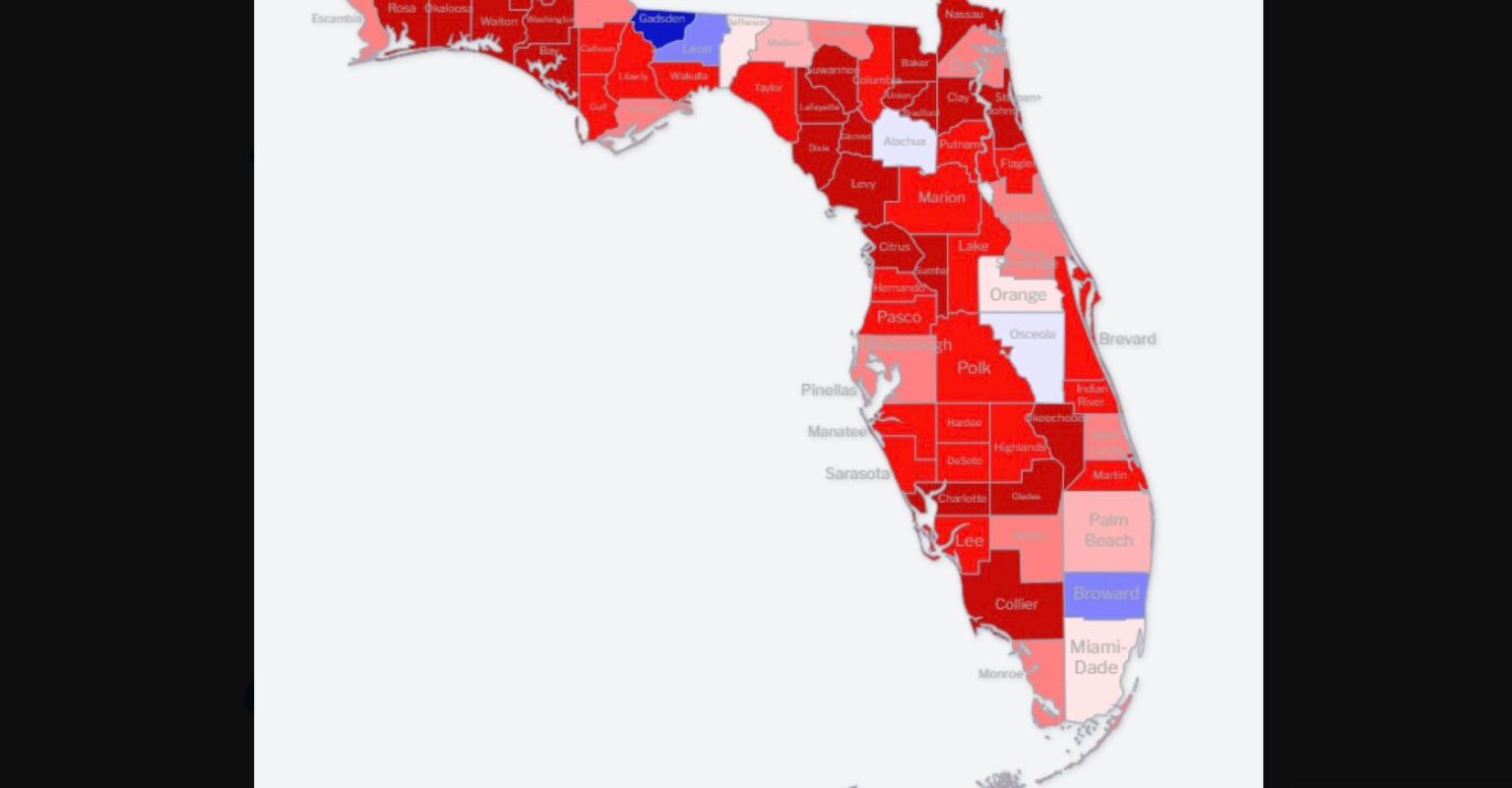The concept of bellwether states has long been a keystone of American presidential election strategy, serving as indicators that often predict the outcome of elections. Historically, states like Ohio, Florida, and Iowa have been labeled as bellwethers due to their ability to consistently choose the eventual winner of presidential races. For instance, from 1964 to 2020, Ohio maintained an impressive record, voting for the successful presidential candidate 93% of the time since 1900. Political analysts have traditionally held that if a candidate manages to secure victories in these pivotal states, they are likely to clinch the presidency. However, this notion came into question during the 2020 election when Joe Biden unexpectedly gained momentum late at night, ultimately overcoming Donald Trump, despite the latter’s strong performance in these historically crucial states.
Biden’s victory in 2020 was particularly remarkable as he only won a single bellwether county—a feat that had never before been achieved in U.S. history. This highlighted a significant shift in the electoral landscape, raising suspicions about election integrity among some factions, particularly those supportive of Trump. The belief that the elections were marred by cheating perpetuated a narrative that has yet to dissipate within certain political circles. The dynamics surrounding the bellwether states have taken on a new meaning as discussions of election integrity and candidate legitimacy reshape the political conversation in America.
Fast forward to the current election cycle, and Florida, a critical bellwether state, presents a dramatic shift in political allegiance. Current polling indicates that Donald Trump is poised for a substantial victory, marked by a nearly 1.2 million vote lead over Democratic candidate Kamala Harris. This unprecedented margin suggests a significant Republican advantage that could foreshadow a broader trend in the electoral landscape, challenging previous assumptions about the competitiveness of key swing states. The current data presented by political commentators underscores a substantial shift in voter sentiment, particularly within historically Democratic strongholds such as Miami-Dade County.
The remarkable scenarios unfolding in Florida suggest that historical patterns may be evolving, and the 2024 election could further entrench Republicans’ dominance in this critical battleground. The current polling shows Trump leading by a staggering 23% in Election Day voting—indicative of a shift in voter demographics and preferences that analysts are closely monitoring. As the Republican Party aims for a blowout victory and substantial support from diverse constituencies, the changing dynamics in Florida reflect broader national trends that question the traditional roles of bellwether states.
This evolving scenario in Florida reflects a broader transformation in American political alliances, bringing to light how shifts in voter priorities and demographic changes can impact electoral outcomes. The implications of Trump’s potential victory in Florida could signal a tipping point in American politics, prompting debates about the long-term viability of traditional swing states as indicators of presidential success. The challenge for Democrats will be to respond to these shifts effectively, recalibrating their strategies to regain ground in regions that were once considered secured.
As political landscapes continue to evolve, the status of bellwether states remains a focal point for both parties. The Republican lead in Florida serves as a potential wake-up call, compelling Democrats to reassess their strategies if they wish to maintain electoral competitiveness in these critical regions. The upcoming election will be a litmus test for the political climate in America, as various factors including voter turnout, demographic shifts, and evolving political narratives play crucial roles in determining which party will prevail. Whether or not Florida retains its bellwether status in future elections remains to be seen, but the current dynamics undoubtedly underscore a transformative moment within American politics.

